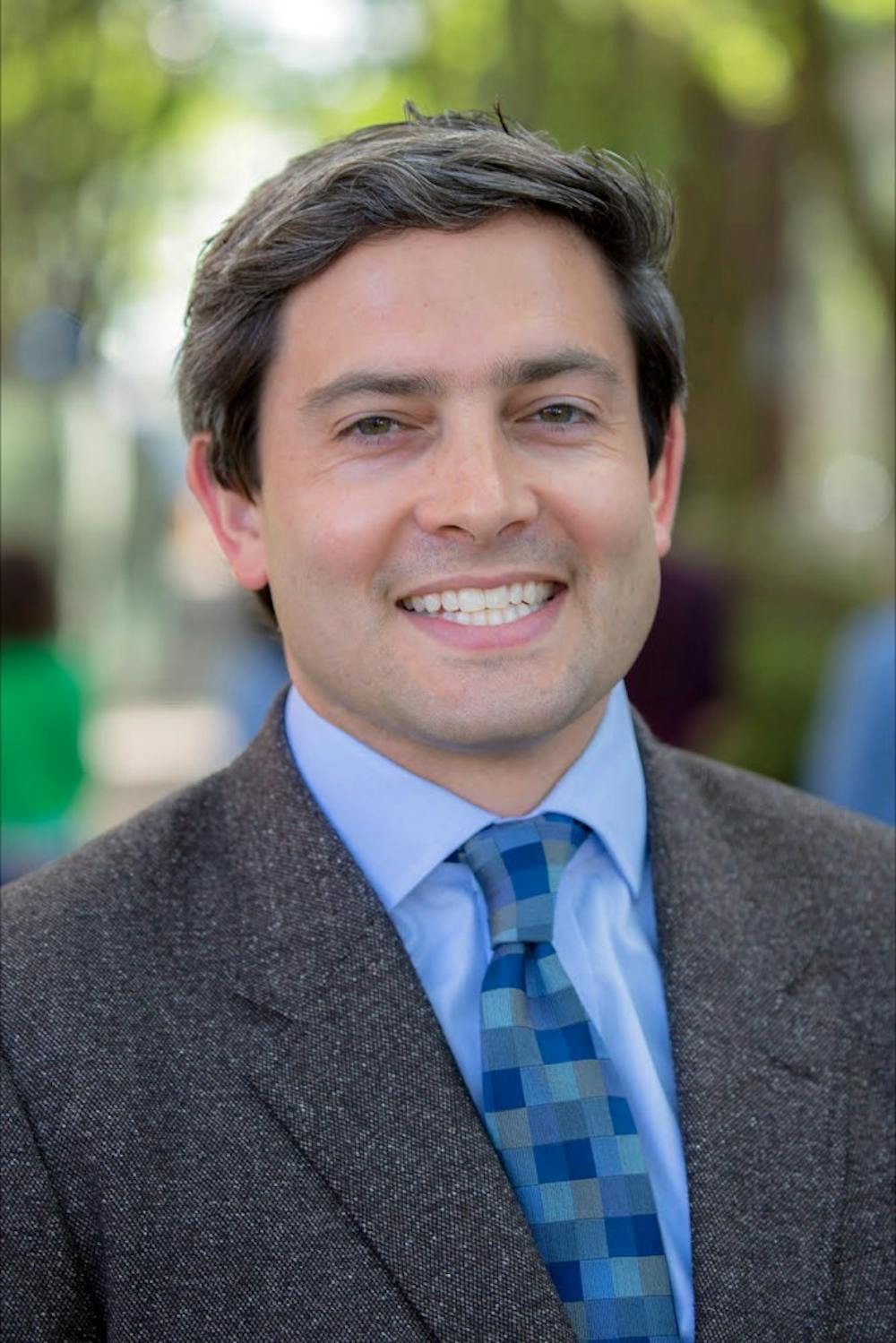Correction: In an earlier version of this article, Tabitha Festo's name was incorrectly spelled and misquoted Barcott. The story has been updated with the changes and The Daily Tar Heel apologizes for the error.
Rye Barcott is the 2018 UNC Spring Commencement Speaker. After graduating from UNC in 2001 on an ROTC scholarship and earning a bachelor’s in peace, war and defense and international studies, Barcott served in the United States Marine Corps. Throughout his service, he volunteered for Carolina for Kibera, a nongovernmental organization that Barcott co-founded in his senior year at UNC. CFK works in the Kibera slum of Nariobi, Kenya, to alleviate poverty and develop local leaders.
After earning his master’s degrees in public administration and business administration from Harvard University in 2009, Barcott published a book for students in 2011. In the past year, Barcott also co-founded With Honor, a political organization seeking to form coalitions across party lines with post-9/11 veterans. Barcott lives in Charlotte with his wife and two children.
The Daily Tar Heel: What was your time at Carolina like?
RB: I had a phenomenal time at Carolina. I was in the Class of 2001, on an ROTC scholarship and, maybe most importantly, I met my wife at Carolina in a class taught by Professor Niklaus Steiner. That was definitely another highlight of my time at Carolina.
DTH: What was it like studying peace, war and defense and international studies?
RB: I had the good fortune of having two tremendous mentors in each curriculum who taught me a lot about life, and frankly, about service. They were professor of peace, war and defense Richard Kohn, who had formerly been chief historian of the U.S. Air Force, and then Dr. Jim Peacock, and Jim was in the anthropology department. One of the most powerful quotes that I’ve learned and tried to apply to different parts of service is a quote from Jim Peacock: “Talent is universal, but opportunity is not." And what that means for me is that there are powerful ways that we as individuals can help talented people to new opportunities and that have a catalytic effect.
DTH: What advice do you have for students at Carolina studying peace, war and defense and international studies right now?
RB: It’s a unique time in the world, and it’s a unique time as a college student. It’s worthwhile to keep in mind that a college degree puts you into the global elite, even though you might not feel that way on campus where we study hard and work late hours. But it’s worth noting that only about 5 percent of the world population has the privilege, and it is a privilege to have a college education like Carolina.



